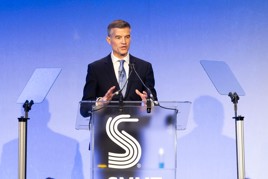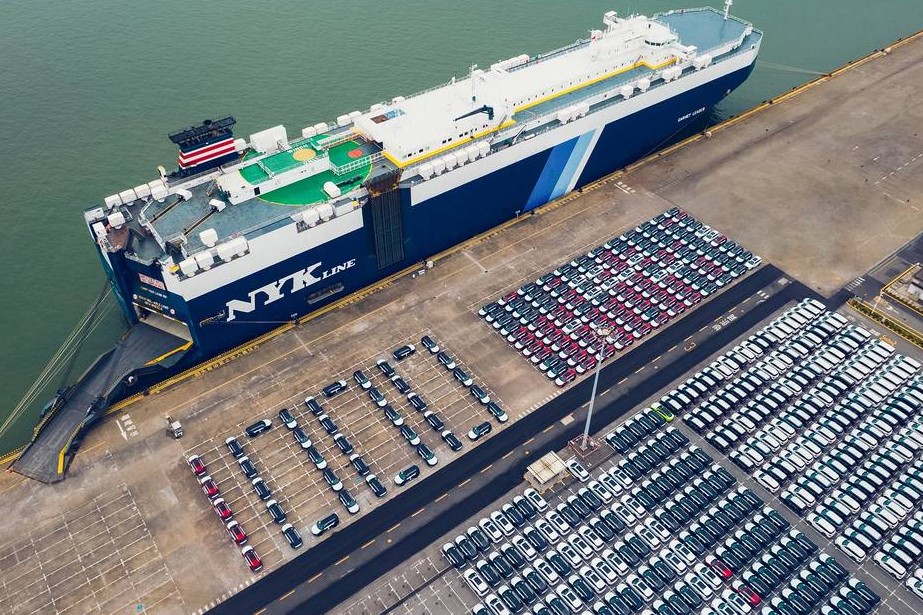The UK Government will apply trade sanctions if the UK's new car market becomes at risk of a flood of cheap electric vehicles from China's state-backed manufacturers, transport secretary Mark Harper has warned.
He spoke at yesterday's SMMT Connected conference in London and responded to questions about a potential influx of China-built EVs by noting that the Government could use its trade remedies regime, which can levy tariffs on imports judges to have unfair advantages.
However, consumers benefit from wider choice and a lowering of the entry prices to get into EVs. Harper said he wants as many carmakers involved in the new car market as possible, although added: "The important thing is it's a fair, competitive landscape."
He told SMMT delegates: "I know if the competition is fair, British manufacturers are absolutely at the table and we'll be able to compete with anybody in the world domestically but also exporting technology around the world."
 The European Commission (EC) announced in September that it would launch an investigation into Chinese subsidies for EVs, and more recently president Joe Biden's US Government has labelled Chinese EVs a risk to America's national security and threatened to impose restrictions.
The European Commission (EC) announced in September that it would launch an investigation into Chinese subsidies for EVs, and more recently president Joe Biden's US Government has labelled Chinese EVs a risk to America's national security and threatened to impose restrictions.
According to researchers in America, China's authorities have invested £78 billion in subsidies for its domestic EV companies since 2009. China is the world's largest producer of EV batteries and it has more than 90 car brands selling plug-in vehicles in its domestic market.
In the international markets, Chinese brands now represent approximately half of all EVs sold.
Chinese companies have significantly advanced battery technology. The country has strongly advocated for lithium iron phosphate (LFP) batteries, in contrast to the more prevalent lithium nickel manganese cobalt (NMC) batteries used in the Western world, which rejected LFP technology due to its historically lower energy density and subpar performance in colder temperatures.
However, in recent years Chinese companies have reduced this energy density gap, and as LFP batteries can be produced more cheaply there is a huge competitive advantage.
Harper's comments came a day before Vauxhall's managing director James Taylor (pictured below) published an open letter to prime minister Rishi Sunak urging him to re-energise the electric car market with three simple steps.
 "Make the switch as financially obvious for a private driver as it is for a company car driver (like in many other European countries) and reduce VAT on electric cars to 10%. This would immediately cut around £3,000 off a small EV, like the Corsa, and at least £4,000 off a family electric car, like the Astra," wrote Taylor.
"Make the switch as financially obvious for a private driver as it is for a company car driver (like in many other European countries) and reduce VAT on electric cars to 10%. This would immediately cut around £3,000 off a small EV, like the Corsa, and at least £4,000 off a family electric car, like the Astra," wrote Taylor.
He added: "Make charging costs fairer — if you have a drive and charge at home, you pay five per cent VAT on electricity. If you can only charge in public, then it is 20 per cent. That’s wrong.
"We need to remove the red tape that is slowing down the councils and companies trying to install even more chargers, even faster. Things like quicker planning permission and access to the grid. The sooner people see more chargers, the sooner they will be more confident to switch."


















Login to comment
Comments
No comments have been made yet.